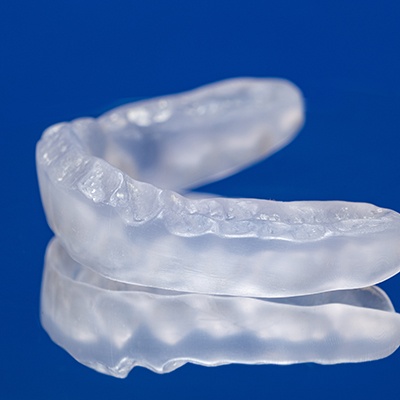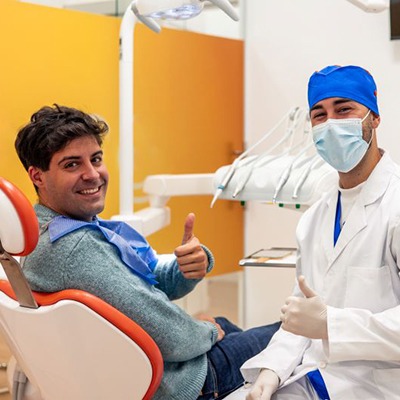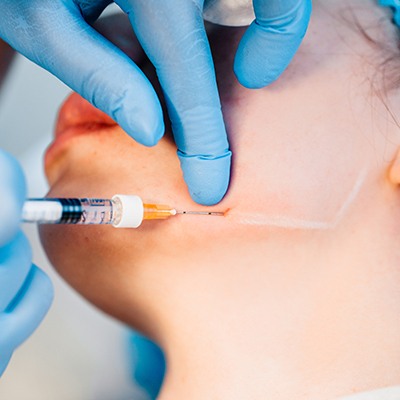TMJ Treatment Beaverton
A Solution for Jaw Pain

Jaw pain, difficulty chewing, and headaches are very common symptoms of TMJ disorder (TMD). If you have this condition, it can have big consequences for your daily quality of life! How can you find lasting relief? Our Beaverton dental team is eager to assist you via non-invasive and effective TMJ treatment. To learn more, continue reading this page or contact our office directly. We look forward to helping you find a lasting solution for your jaw pain!
Why Choose Wolfe Dental Cedar Mill for TMJ Treatment?
- Effective & Non-Surgical Treatment Methods
- Highly Skilled Dentists & Support Staff
- Improve Your Oral Health & Function
What Is TMJ Disorder?
TMJ is an acronym for temporomandibular joint. Everyone has two TMJs, which are located in front of each ear. They control movements of the lower jaw. If your TMJs become overworked, inflamed, or injured, you may start to manifest symptoms of TMJ disorder. This can be the result of accidents, arthritis, teeth grinding and clenching, or a range of other factors. Anyone can develop TMD, but it tends to be most common among women, particularly those of childbearing age (possibly due to hormones or the slight differences in jaw anatomy between men and women).
Symptoms of TMJ Disorder

TMD can cause a broad range of symptoms. Some of the most common include:
- Tension and pain in the jaw
- Sore facial muscles
- Pain in the neck, back, and shoulders
- Ringing or pain in the ears
- Migraines and headaches
- Limited jaw mobility or the sensation of lock jaw
- Pain behind the eyes
- Decreased ability to chew food, particularly tough or chewy items
Types of TMJ Treatment

There are a number of ways in which TMD can be treated. In order to determine the best therapy for you, our team will perform an examination and possibly use imaging equipment to learn about your jaw joints and the surrounding structures. We will also ask you to describe your symptoms in detail. Then, we can recommend your next steps. Depending on your circumstances, we might determine that one of the following treatments could be effective for you:
Occlusal Splint

An occlusal splint is a custom oral appliance that is designed to prevent teeth grinding. It also gently repositions the lower jaw, which can help to reduce tension on it and your overworked facial muscles. With consistent use, you may find that an occlusal splint provides long-term relief from TMD symptoms.
Equilibration/Occlusal Adjustment

In some cases, TMD occurs due to minor imperfections in the way the upper and lower teeth work together. To correct such imbalances, we may have to perform a service known as equilibration or an occlusal adjustment. Essentially, this means that we make slight modifications to the surfaces of your teeth and/or crowns so that your bite functions more harmoniously.
BOTOX® Injections

Even though BOTOX is most widely known for its cosmetic applications, it can also be useful as a means of reducing TMD symptoms. When it is strategically injected near the jaw, it can force overworked muscles to relax. This can reduce stress on the jaw joints and lead to significant pain relief.
